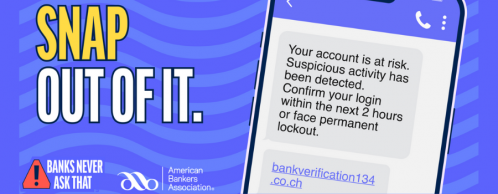
Take Ownership of Your Security with a Strong Password
Who owns the security of your information? The answer is that security is everyone's responsibility - including you and the businesses that secure your email address online or physically. Think about how often you log into a website using your credentials. Now, think about how often you reuse the same password.
The Identity Theft Resource Center (ITRC) Annual Data Breach Report recorded 3,205 cyber-attacks leading to data compromises in 2024. With so many entities in possession of your credentials, password security is something that you need to manage - but how? By arming yourself with knowledge and making your passwords hard to hack.
Security Tips Start your security protocol by checking to see if your email address and/or password have been compromised by using this free tool "Have I Been Pwned". This tool even tells you which breach is associated with your stolen passwords. Additionally, you can register to be notified when credentials have been compromised.
If you discover you need to change passwords - or want to take better ownership of your security - use these tips:
- The National Institute of Standards and Technology (NIST) recommends at a minimum, passwords should be:
- Long - at least 16 characters long (even longer is better).
- Random - use a string of mixed-case letters, numbers, and symbols (the strongest!) or a passphrase of four to seven random words.
- Unique - used for one and only one account.Use multi-factor authentication wherever possible - especially when accessing websites linked to financial records.
- Frequently change your passwords using the above criteria.
- Never click on links or attachments in emails.
If you are a victim of a cyberattack or scam, immediately change any passwords you might have revealed. Contact SFB Customer Service at 888.254.0615 if you believe your financial information may be compromised.



